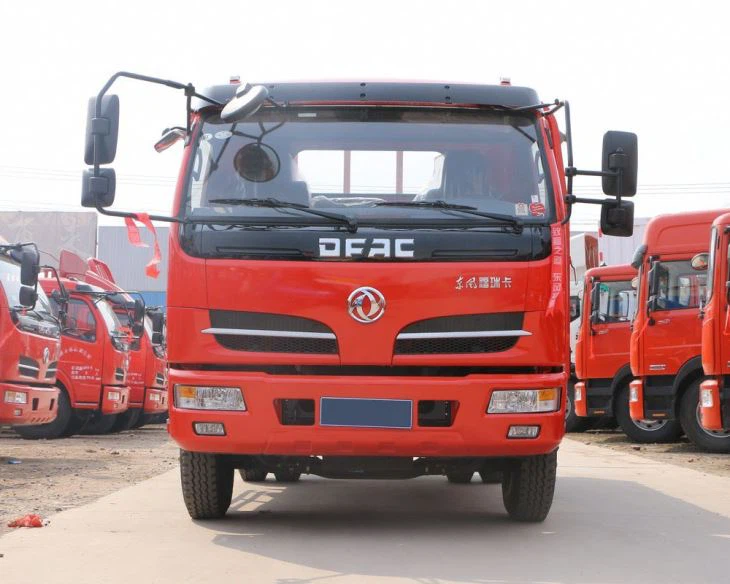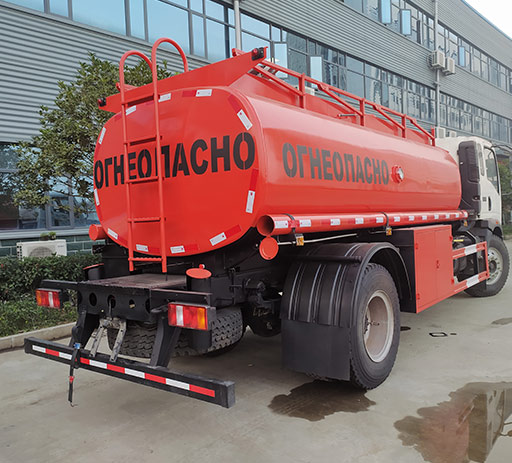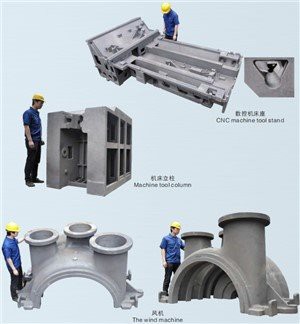Understanding Vacuum Trucks: A Comprehensive Guide

Introduction to Vacuum Trucks
Vacuum trucks are specialized vehicles designed to transport and dispose of liquids, sludge, and other waste materials. They play an essential role in various industries, including construction, municipal services, and environmental management. These trucks are equipped with powerful vacuum systems, allowing them to suck up debris from different surfaces efficiently. This article will explore the intricacies of vacuum trucks, their functionality, applications, maintenance, and various types available in the market today.
What are Vacuum Trucks?

Vacuum trucks are heavy-duty vehicles specifically designed for vacuum suctioning, transporting, and disposing of liquid and semi-liquid waste. Their primary function is to remove waste materials from confined spaces such as pits, tanks, or even underground systems. The key components of a vacuum truck include a tank, pump, and filtration systems, which work together to ensure effective waste management.
Components of a Vacuum Truck
- Tank: The storage unit that holds the waste collected. Tanks come in various sizes, depending on the truck capacity.
- Pump: The heart of the vacuum system, which creates suction to draw waste into the tank.
- Hoses and Fittings: These connect the pump to the area being cleaned, allowing for easy waste collection.
- Filtration System: Utilizes filters to separate solids from liquids, ensuring that only the appropriate materials are stored in the tank.
Types of Vacuum Trucks
1. Liquid Vacuum Trucks
Primarily used to transport and dispose of liquids such as sewage, sludge, or industrial waste. They are equipped with lightweight tanks designed to handle corrosive materials.
2. Dry Vacuum Trucks
Ideal for collecting dry materials like dust, debris, or granular waste. These trucks are often used in construction and industrial environments.
3. Combination Vacuum Trucks
These versatile trucks can handle both liquid and dry materials, making them ideal for a wide range of applications. They typically have separate compartments for each type of waste.
4. Hydro Excavation Trucks
Using high-pressure water jets, these trucks safely expose underground utilities without causing damage. They then vacuum up the debris to maintain a clean worksite.
Applications of Vacuum Trucks
1. Municipal Waste Management
Vacuum trucks play a vital role in municipal waste management systems. They are regularly utilized to clean sewer systems, storm drains, and septic tanks.
2. Industrial Cleaning
In factories and power plants, vacuum trucks are essential for removing hazardous materials and managing spills safely and efficiently.
3. Construction Sites
Construction companies use vacuum trucks to clear debris, water, and mud from job sites, ensuring a safer and more organized environment.
4. Environmental Cleanup
In the event of hazardous material spills, vacuum trucks are deployed to contain and clean up the site promptly. They ensure compliance with environmental regulations.
How Vacuum Trucks Work
Understanding how vacuum trucks operate can provide valuable insights into their efficiency and overall importance. Here’s a step-by-step breakdown:
Step 1: Set Up
The operator positions the vacuum truck near the waste source and attaches the appropriate hoses and fittings.
Step 2: Pump Activation
Once connected, the vacuum pump is activated, generating suction that pulls waste into the holding tank. The filtration system ensures that solids are separated from the liquids.
Step 3: Waste Transport
After collecting the waste, the operator transports the truck to a designated disposal facility for proper waste management.
Maintenance of Vacuum Trucks
Importance of Regular Maintenance
Regular maintenance is crucial to ensure the longevity and efficiency of vacuum trucks. Neglecting maintenance can lead to costly repairs and downtime.
Common Maintenance Practices
- Regular Inspections: Check hoses, fittings, and pumps for leaks or wear.
- Fluid Checks: Monitor fluid levels in the vacuum system regularly to ensure optimal performance.
- Cleaning: Clean the tank interior to prevent corrosion and build-up.
- Performance Testing: Conduct performance tests on the pump and vacuum systems periodically to ensure they are functioning optimally.
Scheduled Servicing
Most vacuum truck operators follow a maintenance schedule that includes bi-annual or annual servicing by qualified technicians to ensure all components function properly.
Choosing the Right Vacuum Truck
Factors to Consider
When selecting a vacuum truck for your needs, consider the following factors:
1. Type of Waste
Determine whether you need to transport liquids, dry materials, or both. This will influence your choice of vacuum truck.
2. Capacity Requirements
Consider the size of the tank necessary for your operations. Larger tanks allow for less frequent dumping but may compromise maneuverability.
3. Type of Operating Environment
Evaluate the environment where the truck will be used. Construction sites may require rugged trucks, while municipal applications may allow for more standard designs.
4. Budget
Set a budget while keeping in mind that higher quality trucks may require a larger investment but provide better long-term value.

Cost of Vacuum Trucks
The cost of vacuum trucks can vary widely based on several factors:
1. Type of Truck
Liquid vacuum trucks typically range from $100,000 to $300,000, while combination trucks may cost between $200,000 and $500,000, depending on capabilities.
2. Features and Accessories
Additional features such as specialized hoses, filtration systems, and hydro excavation capabilities can contribute to higher prices.
3. New vs. Used
Purchasing a new vacuum truck may provide better warranty options and reliability, while used trucks can be more budget-friendly but may require more immediate maintenance.
Safety Considerations
Personal Protective Equipment (PPE)
Operators and workers should always use appropriate PPE, including gloves, goggles, and high-visibility clothing, to minimize risks.
Handling Hazards
Understanding the materials being collected is essential. Workers should be trained to handle potential hazardous waste safely.

Emergency Procedures
Establish and train personnel on emergency procedures for spill containment or equipment failure to ensure a swift response to any incident.
FAQ Section
What types of waste can vacuum trucks handle?
Vacuum trucks can handle a wide range of materials, including sewage, industrial waste, hazardous materials, dry debris, and slurry.
How much does a vacuum truck cost?
The cost of vacuum trucks varies significantly based on type, size, and features, ranging from $100,000 to over $500,000.
Are vacuum trucks environmentally friendly?
Yes, vacuum trucks help mitigate environmental impact by safely transporting and disposing of waste, particularly hazardous materials.
How often should vacuum trucks be serviced?
Vacuum trucks should undergo regular inspections and maintenance every six months to one year to ensure optimal performance and safety.
Can vacuum trucks be used for septic tank pumping?
Yes, vacuum trucks are commonly used for septic tank pumping, effectively removing waste without contamination or spillage.
Is training required to operate a vacuum truck?
Yes, operators should receive proper training to understand the mechanics of the truck and ensure safe handling of waste materials.
